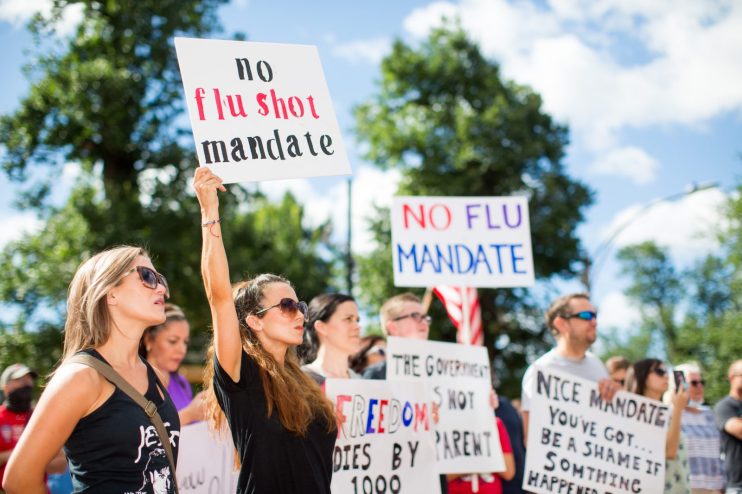MPs to grill social media platforms over anti-vax conspiracies

Social media firms are set to be hauled in front of MPs to answer questions about what they are doing to remove online misinformation about Covid-19 vaccines.
The DCMS sub-committee on online harms and disinformation will next month grill executives from Google, Facebook and Twitter amid concerns over the rise of so-called anti-vax conspiracy theories.
Earlier this month the tech giants agreed a package of measures with the government in a bid to limit the spread of vaccine misinformation.
The platforms endorsed the principle that no company should profit from anti-vax conspiracy theories and pledged to respond more quickly to harmful content.
“It is very clear that there is a small window of opportunity to crack down now on misinformation put out there about vaccines that are intended to halt the spread of Covid-19,” said committee chair Julian Knight.
“We want to talk to Google, Facebook and Twitter to find out how they are working to combat the presence of ‘anti-vax’ content on their platforms.”
Knight added that the threat of vaccine misinformation should be a “wake-up call” to the government over its delayed online harms legislation.
Tech giants have come under fire in recent months over their failure to crack down on misleading content related to Covid-19, including viral hoaxes about how to treat the virus and baseless claims that the pandemic was linked to the rollout of 5G.
Recent upbeat announcements from Pfizer, Moderna and Astrazeneca have raised hopes that a successful coronavirus vaccine could be insight.
But the government is now concerned that false claims circulating on social media could derail efforts to carry out mass immunisation.
It comes amid growing questions over whether anti-vaxxers could be penalised as the economy reopens following the pandemic.
Top Tory MP Tom Tugendhat has said he could “certainly see the day” when people are refused entry into pubs and restaurants, and they may not be allowed to return to their work place until they have had the vaccine.
But a leading lawyer has warned these measures could result in expensive discrimination claims.